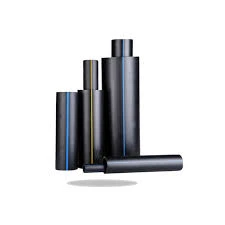Nov . 02, 2024 05:40 Back to list
polypropylene panel
Understanding Polypropylene Panels A Versatile Material for Various Applications
Polypropylene panels have emerged as a popular choice in various industries due to their remarkable properties and versatility. Made from polypropylene, a thermoplastic polymer, these panels are known for their lightweight nature, durability, and chemical resistance, making them an ideal solution for numerous applications.
One of the most significant advantages of polypropylene panels is their lightweight characteristic. This property makes them easy to handle and transport, reducing shipping costs and labor during installation. Additionally, their lightness does not compromise structural integrity; these panels are strong enough to withstand significant stress, making them suitable for demanding environments such as construction sites, packaging, and even automotive applications.
Durability is another key feature of polypropylene panels. They are resistant to impacts, moisture, and various chemicals, which makes them particularly useful in environments that may expose them to harsh conditions. For instance, in the agricultural sector, polypropylene panels are often used for construction materials in greenhouses and livestock housing because they can endure varying temperatures and resist mold and mildew, helping to maintain a clean and safe environment for plants and animals alike.
polypropylene panel

The chemical resistance of polypropylene panels is an essential asset as well
. These panels can withstand exposure to a range of acids, bases, and solvents without undergoing significant degradation. This property makes them valuable in laboratory settings and industries such as pharmaceuticals and chemicals, where cleanliness and durability are paramount. In addition, the non-toxic nature of polypropylene ensures that it is safe for use in environments where food and pharmaceuticals are present, adhering to stringent regulatory standards.Furthermore, polypropylene panels offer excellent aesthetic versatility. They can be easily manufactured in various colors and finishes, catering to different design preferences. From modern residential buildings to functional commercial spaces, their adaptability allows architects and designers to utilize them in creative ways, enhancing both the appearance and functionality of a structure.
Sustainability is becoming increasingly important, and polypropylene panels contribute positively in this regard as well. While traditional materials may have significant environmental footprints, polypropylene can be recycled and reused, minimizing waste and promoting sustainability. The growing emphasis on eco-friendly solutions positions polypropylene panels as a favored material choice in green construction and environmentally-conscious projects.
In conclusion, polypropylene panels have established themselves as a fundamental material in various sectors due to their lightweight, durable, and chemically resistant nature. Their versatility makes them suitable for applications ranging from construction and agriculture to packaging and automotive industries. As the demand for sustainable building materials increases, the relevance of polypropylene panels will likely grow, offering innovative solutions to modern challenges. Whether it’s enhancing structural integrity, providing aesthetic appeal, or promoting environmental stewardship, polypropylene panels are truly a remarkable material for a wide array of applications. Their continuous advancement in production and the potential for innovation ensure that they will remain a staple in construction and design for years to come.
-
Durable PP Rigid Sheet: Lightweight, Chemical Resistant Solutions
NewsAug.21,2025
-
PVC Grey Sheet for Extraction: Chemical Resistant & Durable
NewsAug.19,2025
-
Durable PVC Pipe Fittings for Plumbing & Irrigation Needs
NewsAug.18,2025
-
HDPE Steel Belt Reinforced Spiral Corrugated Pipe | High Strength
NewsAug.17,2025
-
HDPE Pipe Fittings: Durable, Leak-Proof Solutions
NewsAug.16,2025
-
Premium CPVC Sheet: High-Temp & Chemical Resistant Solutions
NewsAug.15,2025

